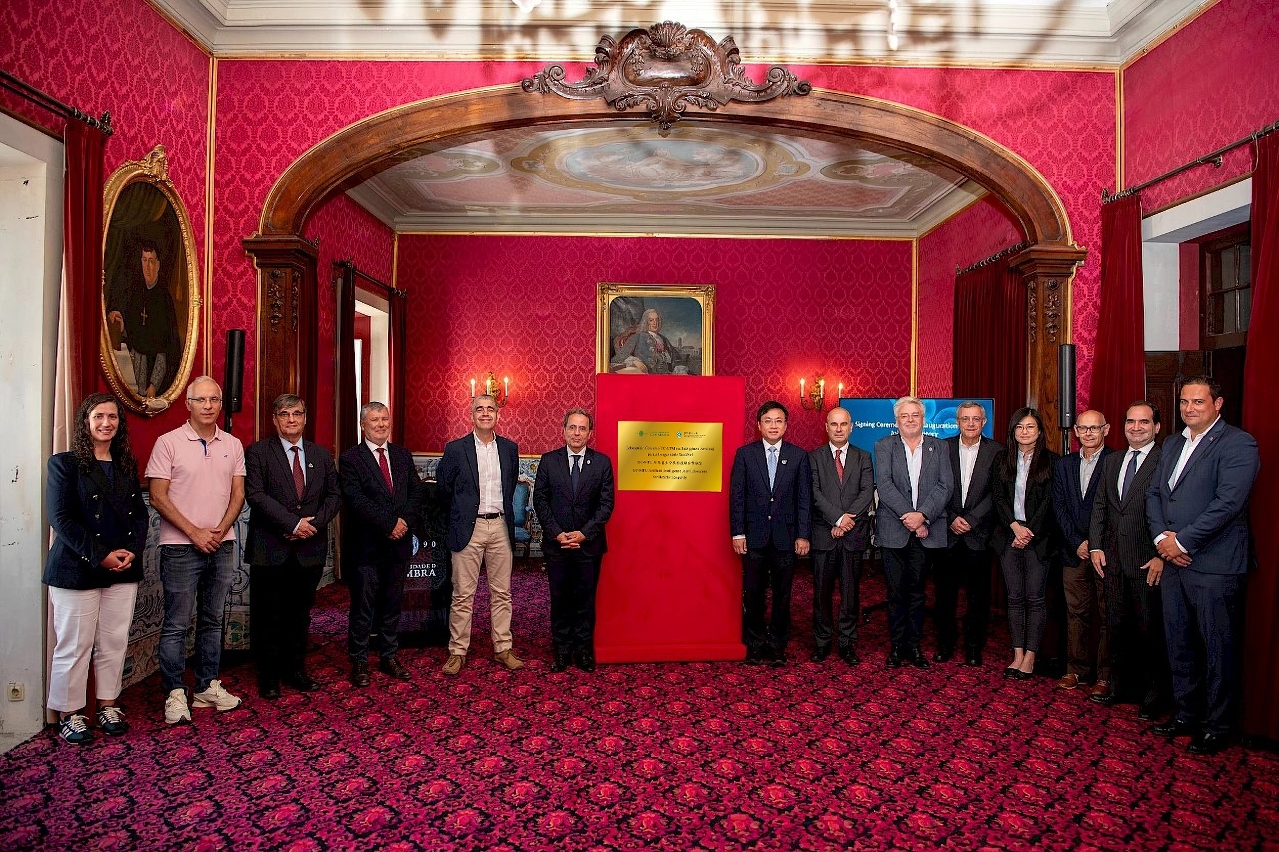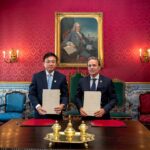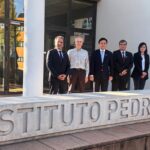 Macao Polytechnic University and the University of Coimbra launch Artificial Intelligence Joint Laboratory for Healthy Longevity to forge Sino-Lusophone technological ties.
Macao Polytechnic University and the University of Coimbra launch Artificial Intelligence Joint Laboratory for Healthy Longevity to forge Sino-Lusophone technological ties.
To strengthen Macao’s role as a platform between China and Portuguese-speaking countries andto advancethe internationalisation ofitshigher education,Macao Polytechnic University (MPU) and theUniversity of Coimbra (UC) have inaugurated the Artificial Intelligence Joint Laboratory for Healthy Longevity in Coimbra, Portugalon 6 October, 2025. The ceremony was presided over by ProfessorMarcusImSioKei,Rector of MPU and ProfessorAmílcarFalcão, Rector of UC,whojointly unveileda plaque to mark thelaboratory’sofficial establishment.Both universities signed agreements aimed at enhancing collaborative education provisionandacademic exchange.
RectorMarcusImSioKei highlightedtheachievements stemming fromthe long-lastingpartnership between MPU and UC, particularly in academic collaboration,researchinnovation, and talent development.The inauguration of this cross-disciplinary laboratory marks a significant step forward, injecting fresh momentum into both Sino-Lusophone cooperation and the global smart health industry. RectorAmílcarFalcãoemphasised that the major projects underway between UC and MPU represent a profound endeavour, driven by a shared vision. He further noted that the laboratory willintegrateacademic and industrial resources to createa dynamic hub for active technological and cultural exchange.
Building on over three decades of collaboration betweenthe two universities,thisnew laboratory leverages theircombinedacademicstrengthstopioneer AI-driven solutions for healthy longevity. Dedicated to interdisciplinary researchwiththeintegrationof AI, biomedical science and healthcare, the laboratory will focus on developing nutraceuticals and traditional Chinese medicinethrough cutting-edge technology.A core mission isto cultivate international research talent,therebycontributing to regional development andadvancingwellnessin Macao andworldwide.
During the ceremony, the rectors signed agreements toelevatethe strategic partnership. These agreements encompasscollaborative education,student and staff exchanges, joint research initiatives, and infrastructural co-developmentacrossMacao and Portugal as well asin the Guangdong-Macao In-depth Co-operation Zone inHengqin, China.Theseinitiativesfurther promote educational and scientific cooperation between China and Portuguese-speaking countries, solidifying Macao’s pivotal role as a Sino-Lusophone platform. They also mark the latest milestone betweenthe two universities, building on the success ofthe“Joint Research Laboratory in Advanced Technologies for Smart Cities” and the dual PhD degree programme in information technology.
During the visit to UC,theMPU delegationheldproductivemeetings withkey UC affiliatesfrom Multidisciplinary Institute of Aging (MIA), Department of Informatics Engineering (DEI), and the Pedro Nunes Institute Incubator (IPN), gaininginsights intoresearchcollaboration models betweenthe university andlocal enterprises.UC representatives includeProfessorManuel Santos, DirectorofMIA;ProfessorJoão Malva, Directorof Healthy Aging Hub;ProfessorEdmundo Monteiro, Director of theFaculty of Sciences and Technology;ProfessorJorge Henriques, DirectorofDEI;ProfessorAntónioMendes, Director of theMPU-UCJoint Research Laboratory in Advanced Technologies for Smart Cities, andProfessorJoão Gabriel Silva, President of the Boardof IPN. MPUdelegatesinclude Professor Joaquim Carvalho, Associate Dean of FacultyofLanguages and Translation, andDr.Christy Cheong, Head of Academic Affairs Department.




